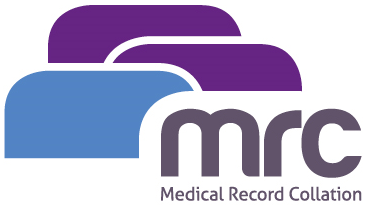In the field of clinical negligence law, the accurate and comprehensive collation of medical records plays a crucial role in determining the outcome of cases. Medical records serve as the backbone of any legal investigation into claims of clinical negligence, offering valuable insights into the care provided, treatment decisions made and potential deviations from accepted standards. This blog post aims to highlight the importance of medical record collation in clinical negligence cases and shed light on how this process significantly influences the pursuit of justice and patient safety.
- Establishing a Baseline
Medical records provide a factual foundation for assessing the standard of care delivered to a patient. Collating these records allows legal professionals to establish a chronological timeline of events, including consultations, diagnoses, treatment plans, and surgical procedures. By reviewing the records, solicitors can identify potential inconsistencies, errors or lapses in the care provided, serving as a starting point for building a case.
- Determining Negligence
Through meticulous examination of medical records, legal experts can determine whether negligence occurred during the course of treatment. By comparing the documented actions of healthcare professionals with established medical guidelines, it becomes possible to identify instances where the care provided deviated from accepted standards. Medical record collation ensures that all relevant documents are compiled, enabling solicitors to identify potential breaches in duty, inadequate communication, diagnostic errors or surgical mistakes.
- Establishing Causation
One of the critical elements in a clinical negligence case is establishing a causal link between the healthcare provider’s actions and the harm suffered by the patient. Medical records are indispensable in determining whether the alleged negligence directly led to the patient’s injuries, worsening of their condition or unforeseen complications. Collating medical records allows legal professionals to identify and analyse critical information. This information includes test results, surgical notes, medication records and expert opinions, which collectively help establish the connection between negligence and harm.
- Expert Analysis
Medical record collation plays a pivotal role in seeking expert opinions from medical professionals specialising in the relevant field. These experts rely heavily on the compilation of accurate and complete medical records to provide an informed evaluation of the care provided. By organising and presenting medical records in a clear and accessible manner, legal teams can effectively leverage expert testimony to strengthen their case and establish the credibility of their allegations.
- Maximising Efficiency and Accuracy
The collation of medical records streamlines the legal process by ensuring that all pertinent documents are readily available for review by the legal team, medical experts and the court. A comprehensive compilation minimises the risk of missing crucial evidence and reduces the likelihood of delays or disputes during legal proceedings. Furthermore, organised and easily accessible medical records contribute to the accuracy of information presented, promoting a fair and impartial evaluation of the case.
In clinical negligence cases, the collation of medical records is an indispensable step in the pursuit of justice and patient safety. By analysing these records meticulously, legal professionals can establish a baseline, determine negligence, establish causation and present expert opinions, all of which are vital in building a robust case. The careful collation of medical records maximises efficiency, ensures accuracy and enhances the overall integrity of the legal process. Through this meticulous approach, clinical negligence cases strive to provide a fair resolution for injured patients, promote accountability in healthcare and foster continuous improvements in patient care standards.
Please view our Collation/Pagination page here to learn more about how we can help with your clinical negligence cases.
